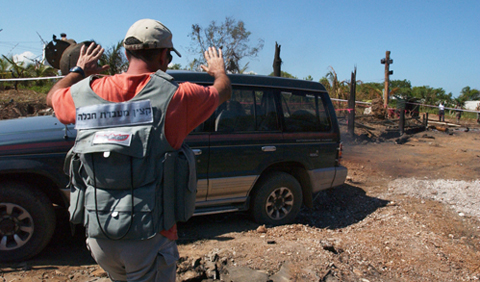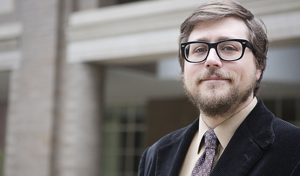By Dr. Brandon Kendhammer
Excerpted from Washington Post blog
Monday morning, a bomb exploded at a busy transit station in Nigeria’s capital Abuja, killing a reported 71 and wounding 124. While no one has yet taken official credit for the attack, all signs point to Boko Haram, a militant Islamist group based in the northeast of the country that has been responsible for nearly 4,000 deaths since early 2011 alone. Sadly, Boko Haram remains only one of many pressing threats to the livelihood of ordinary Nigerians living in the country’s northern region. Ongoing sectarian violence—between Muslims and Christians, as well as between pastoralists and farmers—has led to 3,500 deaths during that same period, while the country’s notoriously heavy-handed security services have been accused of committing “human rights violations with impunity” in their own unsuccessful efforts to eliminate the Boko Haram threat.
What does this have to do with the Fulbright Scholars program, and the budget cuts that threaten it? As sub-Saharan Africa’s largest recipient of U.S. aid (est. $693 million in 2014), Nigeria is at the center of U.S. foreign policy on the continent, a fact only reinforced by its $94 billion annual petroleum exports. It is also home to 85 million Muslims (more than Turkey or Iran) out of its ~170 million citizens, making it a central player in U.S. efforts to counter precisely the sort of extremism represented by Boko Haram. Yet as recently as 2006, the U.S. Embassy had no American personnel who could speak Hausa, the lingua franca of northern Nigeria, and U.S. engagement with the Muslim community there has been limited by security concerns for most of the past 15 years. As a result, when I arrived in the northern city of Sokoto in fall 2007 as a Fulbright student funded through the now-defunct Islamic Civilizations Initiative, I became by default one of the only Americans in regular, daily contact with the political affairs in the region.
The research I conducted focused on the controversial implementation of Islamic law (sharia) by 12 northern states in 2000-01, with a particular interest in how Nigerian Muslims understood the relationship between their faith and the country’s uncertain democratic system….
What does my Fulbright research tell us about the rise of Boko Haram and other radical terrorist groups across West Africa? For one, it suggests that these groups neither represent nor speak for the vast majority of Muslims across the region. Indeed, as a 2012 Gallup report suggests, Nigerian Muslims remain committed to engagement with the West and a moderate, limited version of Islamic law as one among many sources of public policy despite the growing Islamist violence in their midst. For another, it urges caution in the United States’ dealings with the current Nigerian administration, which despite recent announcements to the contrary, seems committed to a brutal military strategy that has led to scores of extra-judicial executions and the detention of thousands of innocent civilians. While few Muslims support Boko Haram’s agenda, poverty and state violence in the north have bred widespread alienation from Abuja, certain to be an explosive factor as President Goodluck Jonathan positions himself for the 2015 presidential elections against a presumptive Muslim candidate from the new opposition All Progressives Congress (APC).
Kendhammer is Assistant Professor of Political Science at Ohio University.
Read Kendhammer’s entire article, “Nigeria’s Islamist insurgency & the value of Fulbright research,” on the Washington Post website.


















Comments